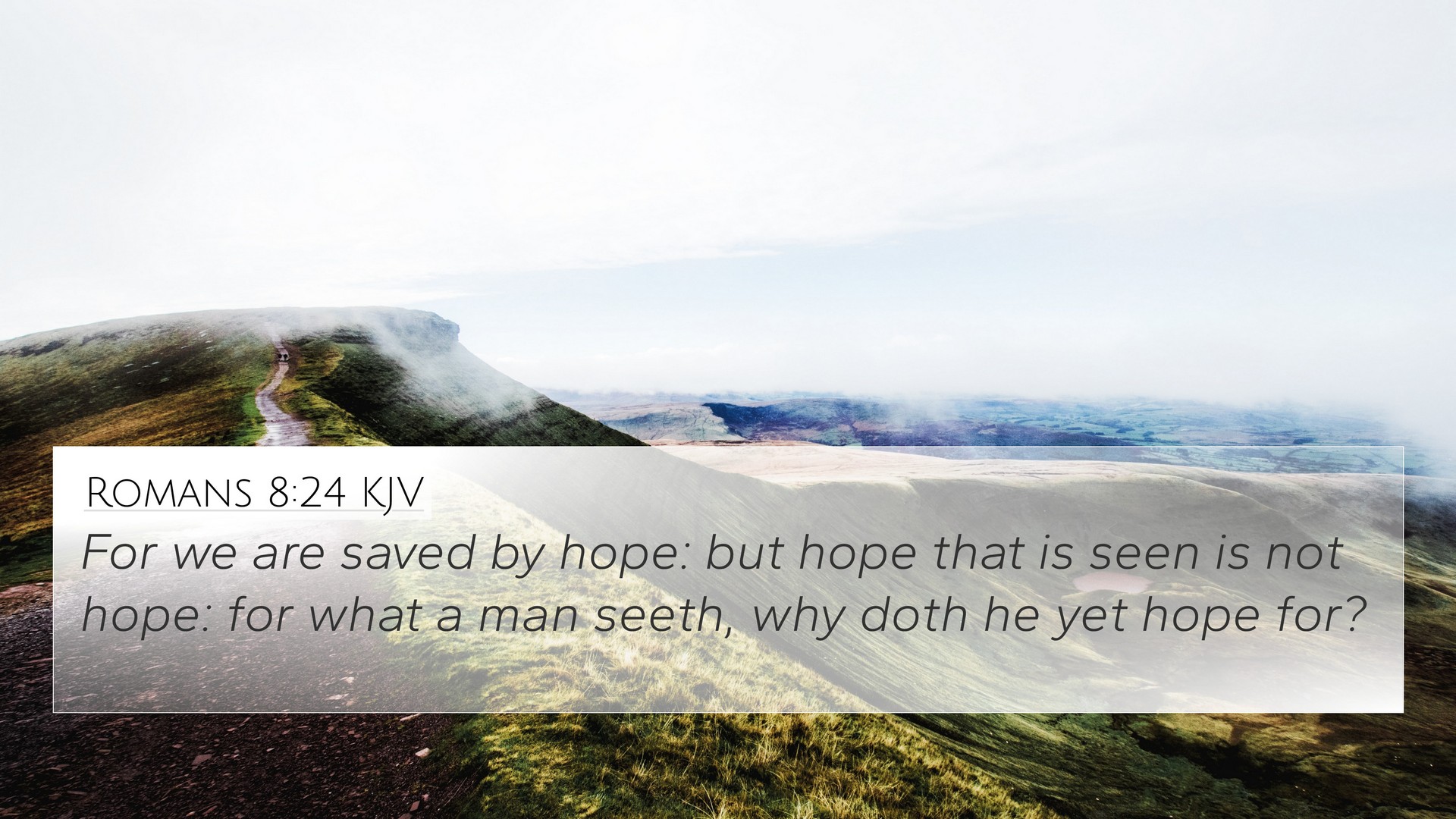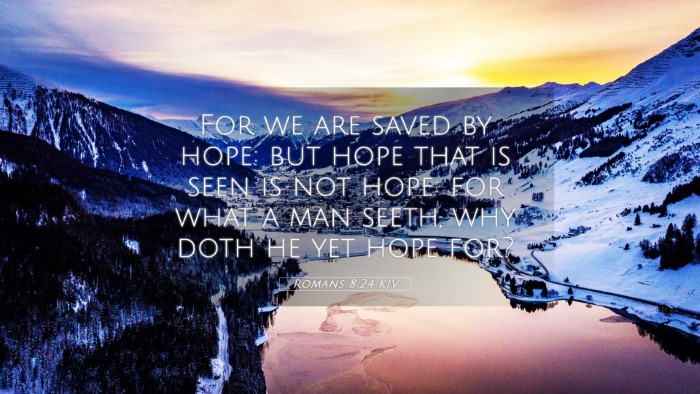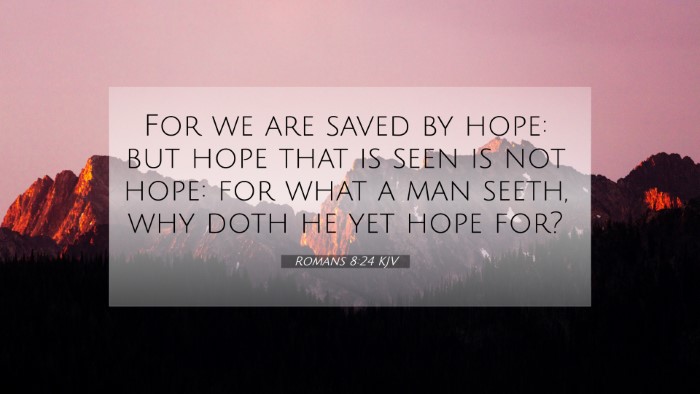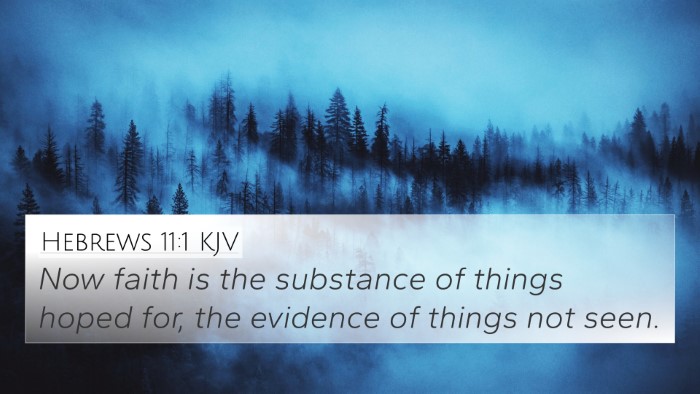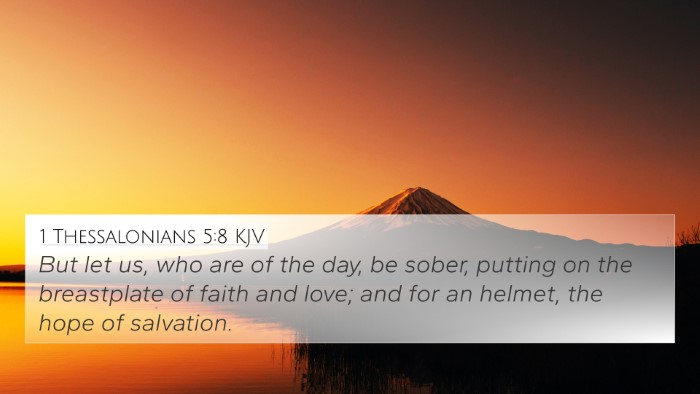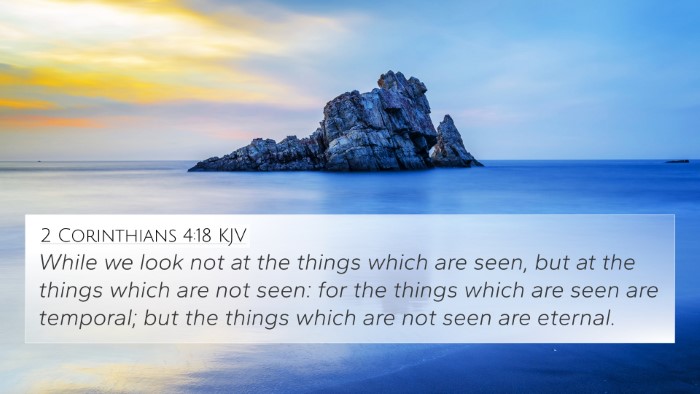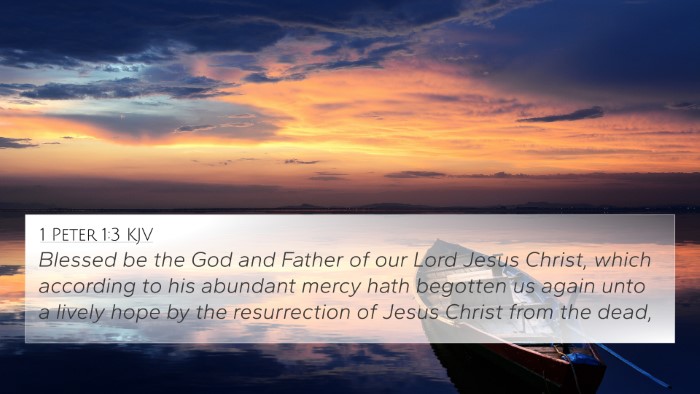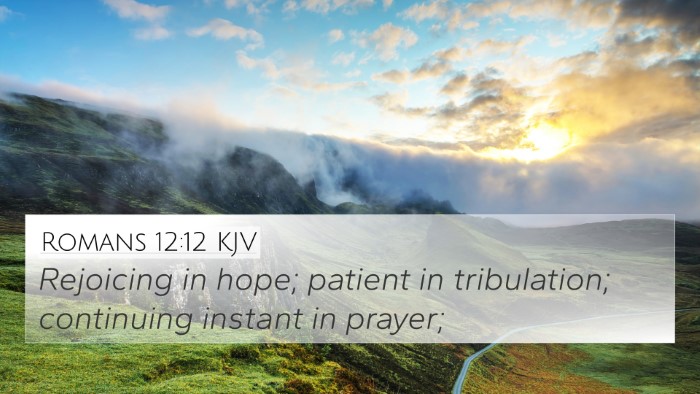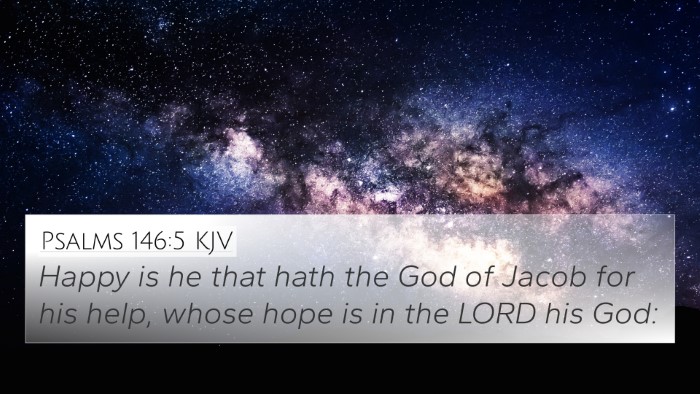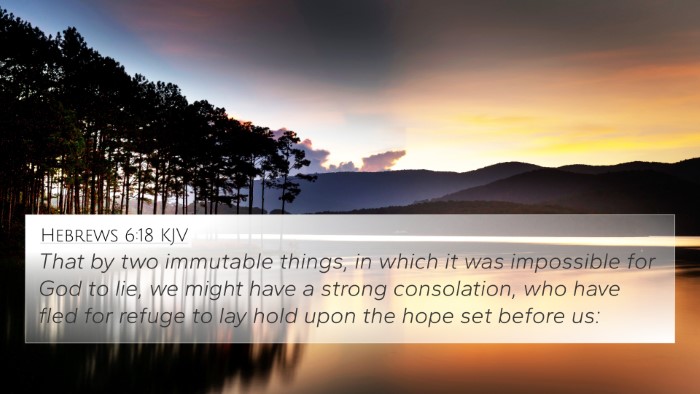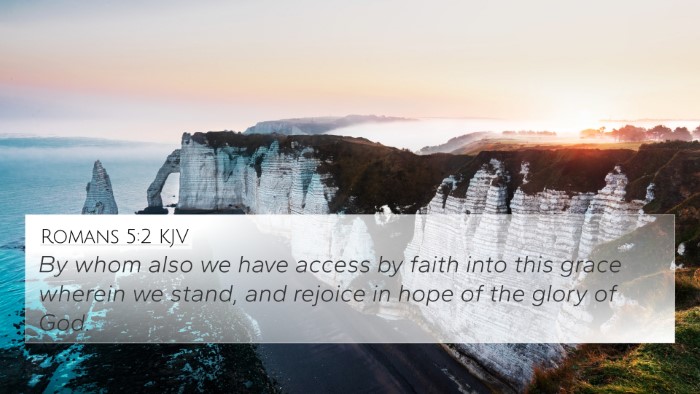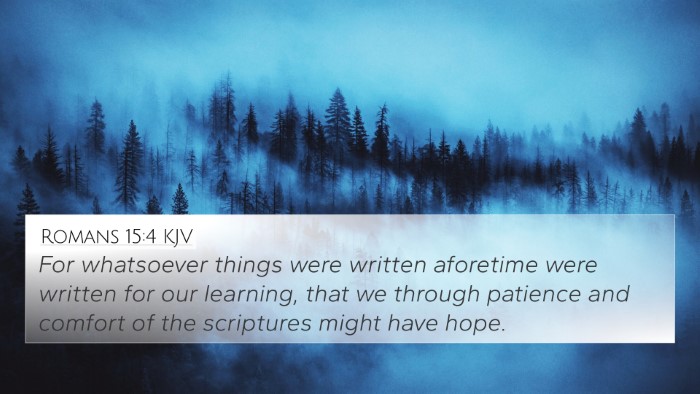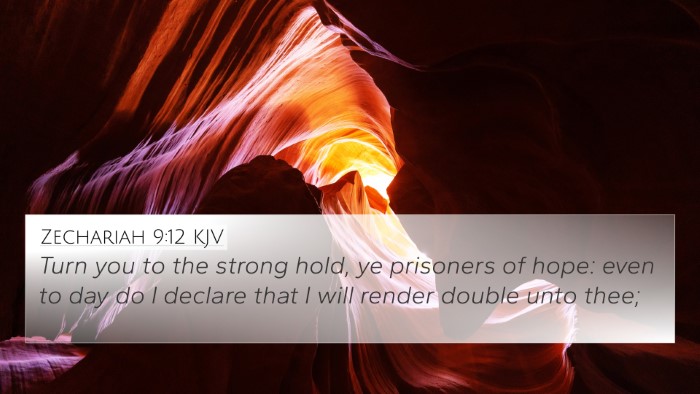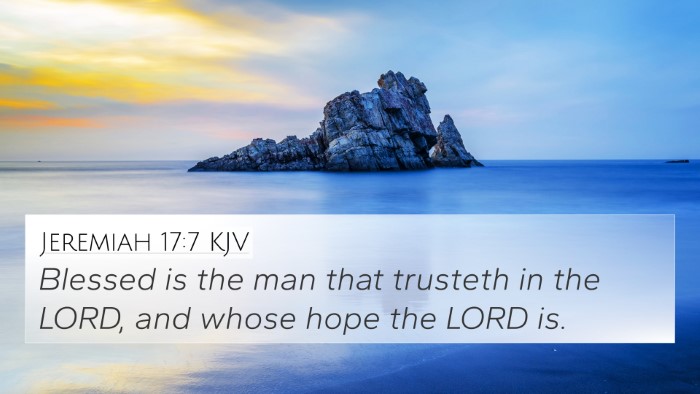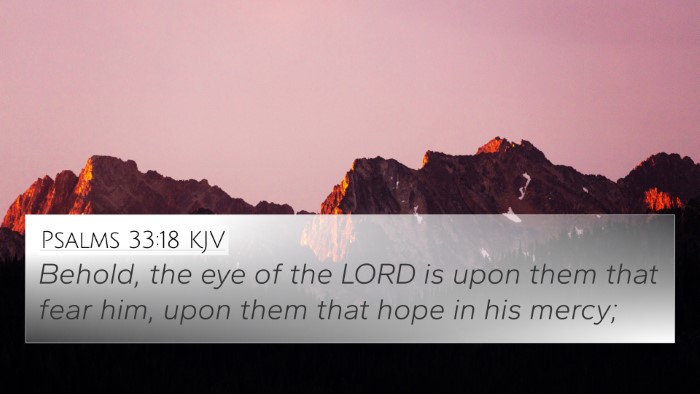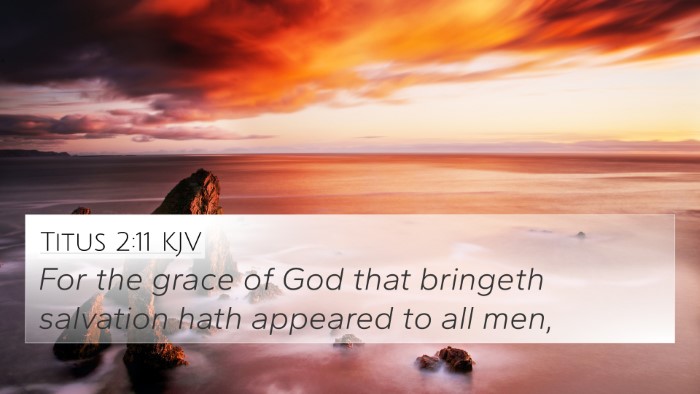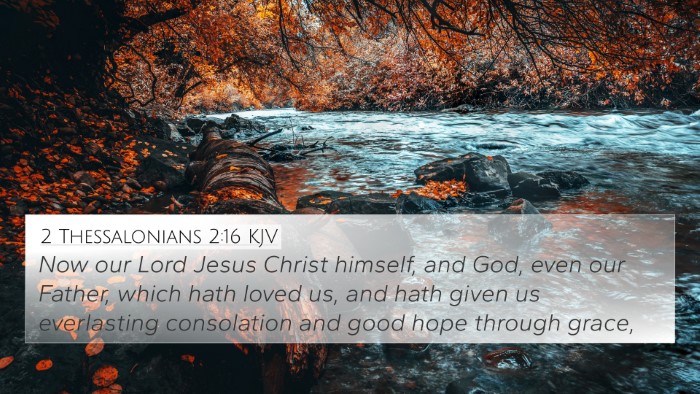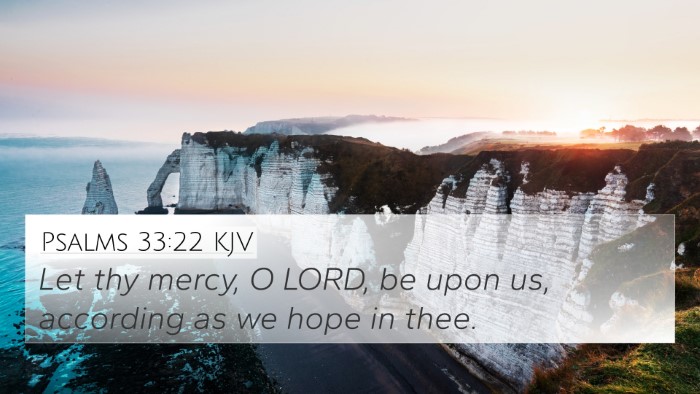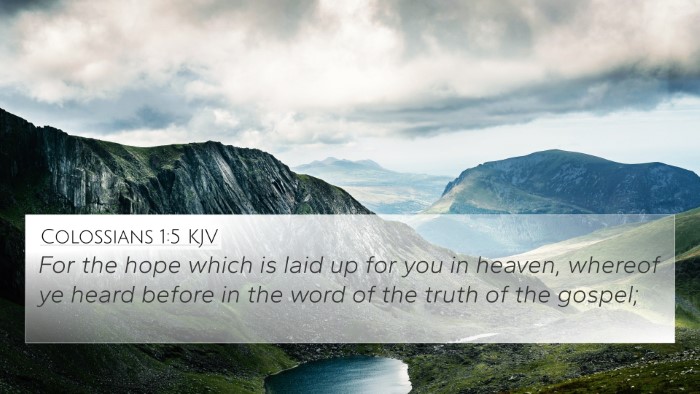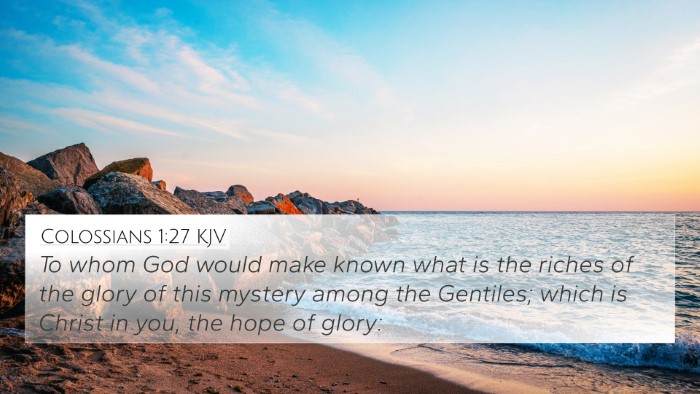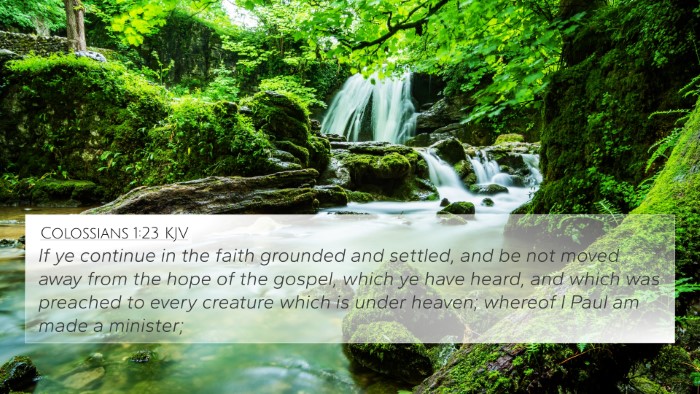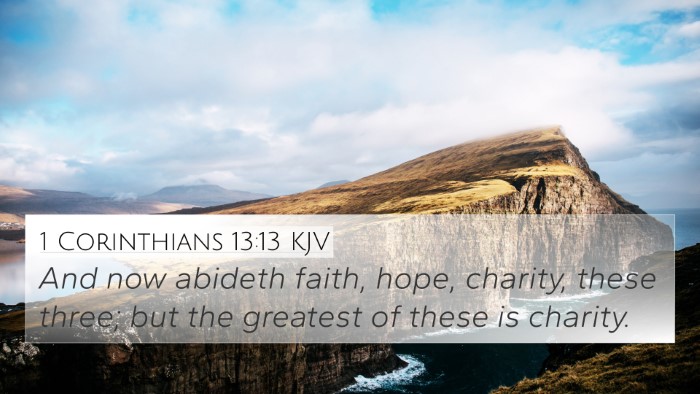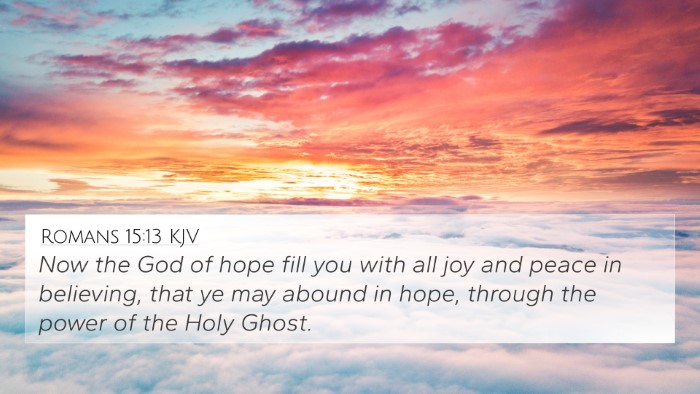Understanding Romans 8:24
Bible Verse: Romans 8:24 - "For we are saved by hope: but hope that is seen is not hope: for what a man seeth, why doth he yet hope for?"
Overview
Romans 8:24 provides profound insight into the nature of hope and salvation, emphasizing the concept that true hope exists in the things we cannot yet see. This verse serves as a crucial part of the Apostle Paul's discourse regarding the Christian experience of suffering and the future glory that awaits believers. The following is a detailed exploration of the verse's meaning, drawing insights from respected public domain commentaries.
Verse Meaning
Matthew Henry's Commentary
Matthew Henry discusses the nature of hope in this passage. He explains that hope is an essential aspect of salvation, wherein believers look forward to the fulfillment of God’s promises, particularly the redemption and resurrection of the body. Henry notes that the hope mentioned here is not based on visible realities but is rooted in faith and spiritual assurances from God. He emphasizes that true hope must be rooted in the unseen, aligning with the theological premise that faith often precedes sight.
Albert Barnes' Notes
Albert Barnes expands on the theme of hope, stating that it is an anchor for the soul (referencing Hebrews 6:19). He points out that this hope relates to both present and future aspects of salvation. Barnes highlights that what one can see does not require hope; therefore, true faith involves trusting in God’s forthcoming revelations and promises. He encourages believers to cultivate hope, particularly in trials, as it reinforces their faith and reliance on divine assurances.
Adam Clarke's Commentary
Adam Clarke offers a detailed analysis of the term "saved by hope." He articulates that hope here signifies a confident expectation of salvation through Jesus Christ. Clarke dives into the Greek terminology used in the verse, explaining that the hope Paul refers to is future-oriented and involves an expectation of eternal life beyond earthly sufferings. He also connects this to other scriptural themes about patience and perseverance, reinforcing the importance of maintaining faith amidst life’s challenges.
Cross-References and Thematic Connections
This verse connects with several significant Bible verses, offering a deeper understanding through scriptural cross-referencing. Here are relevant cross-references that elucidate Romans 8:24:
- Hebrews 11:1: "Now faith is the substance of things hoped for, the evidence of things not seen." This verse emphasizes that faith and hope are intertwined, affirming that hope is based on unseen realities.
- 2 Corinthians 4:18: "While we look not at the things which are seen, but at the things which are not seen: for the things which are seen are temporal; but the things which are not seen are eternal." Paul encourages believers to focus on eternal matters rather than the temporary struggles of the present life.
- Romans 5:2-5: These verses elaborate on the relationship between hope, suffering, and perseverance, indicating that hope does not disappoint because it is rooted in God's love.
- 1 Thessalonians 5:8: "But let us, who are of the day, be sober, putting on the breastplate of faith and love, and for an helmet, the hope of salvation." This emphasizes the role of hope in a believer's armor against spiritual battles.
- Titus 1:2: "In hope of eternal life, which God, that cannot lie, promised before the world began." Paul underscores the assurance of hope in eternal life as a foundation for faith.
- 1 Peter 1:3: "Blessed be the God and Father of our Lord Jesus Christ, which according to his abundant mercy hath begotten us again unto a lively hope by the resurrection of Jesus Christ from the dead." This connects the hope of salvation explicitly to the resurrection of Christ.
- Galatians 5:5: "For we through the Spirit wait for the hope of righteousness by faith." This advocates the active role of the Holy Spirit in nurturing hope in believers.
- Colossians 1:5: "For the hope which is laid up for you in heaven..." Here, Paul affirms that hope extends beyond the earthly realm to our heavenly inheritance.
- Revelation 21:4: "And God shall wipe away all tears from their eyes; and there shall be no more death, neither sorrow, nor crying, neither shall there be any more pain: for the former things are passed away." This illustrates the ultimate fulfillment of hope in eternal glory that believers anticipate.
Conclusion
In summary, Romans 8:24 serves as a significant reminder of the Christian call to hold onto hope amidst trials and tribulations. The insights from Matthew Henry, Albert Barnes, and Adam Clarke bring forth a comprehensive understanding of how hope is central to salvation and the believer's experience. By exploring cross-references within the Bible, one can observe the rich thematic connections that enrich the interpretation of this verse. Believers are encouraged to engage in Bible cross-referencing as a valuable tool to deepen their understanding of God’s promises and prepare for the hope that lies ahead.
